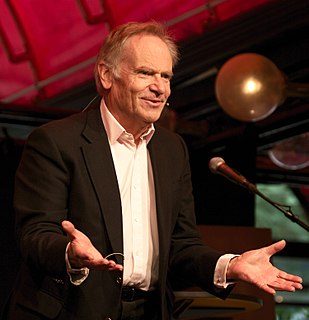A Quote by Elizabeth Gilbert
When you write a novel, there’s a level at which you are much more revealing about who you are because you’re less self-conscious about how you’re presenting yourself. You are accidentally leaving your DNA all over everything in a novel because it’s all coming from you.
Related Quotes
The more readings a novel has, even contradictory, the better. In journalism, you talk about what you know; you have provided yourself with records, you have gathered information, you have performed interviews. In a novel, you talk about what you don't know, because the novel comes from the unconscious. They are very different relationships with words and with the world. In journalism, you talk about trees; in the novel, you try to talk about the forest.
The age of the book is not over. No way... But maybe the age of some books is over. People say to me sometimes 'Steve, are you ever going to write a straight novel, a serious novel' and by that they mean a novel about college professors who are having impotence problems or something like that. And I have to say those things just don't interest me. Why? I don't know. But it took me about twenty years to get over that question, and not be kind of ashamed about what I do, of the books I write.
Yes?’ he asked, looking at me over the sheet. ‘I’m a writer temporarily down on my inspirations.’ ‘Oh, a writer, eh?’ ‘Yes.’ ‘Are you sure?’ ‘No, I’m not.’ ‘What do you write?’ ‘Short stories mostly. And I’m halfway through a novel.’ ‘A novel, eh?’ ‘Yes.’ ‘What’s the name of it?’ ‘”The Leaky Faucet of My Doom.”‘ ‘Oh, I like that. What’s it about?’ ‘Everything.’ ‘Everything? You mean, for instance, it’s about cancer?’ ‘Yes.’ ‘How about my wife?’ ‘She’s in there too.
I think there's much more privileging of the new in art. I think people want to think they privilege the new in writing, but I agree with Virginia Woolf. She wrote a great essay called "Craftsmanship" about how difficult it is to use new words. It's really hard, but you see them coming in because obviously, if you're going to write... I mean, even to write "cell phone" in a novel - it's so boring.
It's very bad to write a novel by act of will. I can do a book of nonfiction work that way - just sign the contract and do the book because, provided the topic has some meaning for me, I know I can do it. But a novel is different. A novel is more like falling in love. You don't say, 'I'm going to fall in love next Tuesday, I'm going to begin my novel.' The novel has to come to you. It has to feel just like love.
Charisma seems to be more about the intoxicating quality that you have on other people, as opposed to presence, which is more about the self in relation to others, and how you feel you represented yourself in a situation, and how you were able to engage. So it's less about how others see you and more about how you see yourself.
Now, as a reader, you shouldn't feel the decisions the writer makes about this DNA, or it would be boring beyond belief. But, as a writer, you're struggling to make these decisions. What should the title be? What's the first line? The point of view? And the struggle with the decisions is because you're trying to figure out WHAT IS THE NOVEL, WHAT IS THE NOVEL?
I always write a draft version of the novel in which I try to develop, not the story, not the plot, but the possibilities of the plot. I write without thinking much, trying to overcome all kinds of self-criticism, without stopping, without giving any consideration to the style or structure of the novel, only putting down on paper everything that can be used as raw material, very crude material for later development in the story.




































